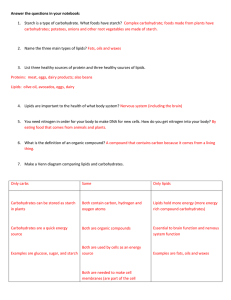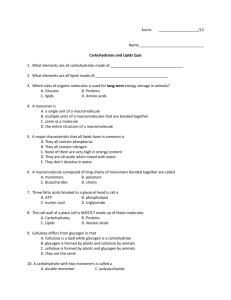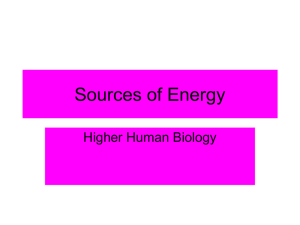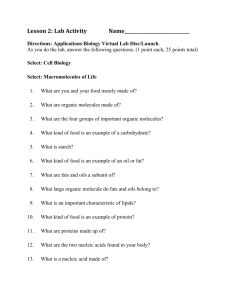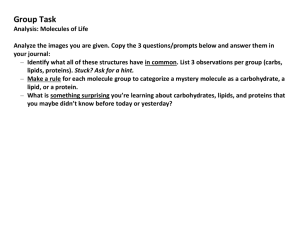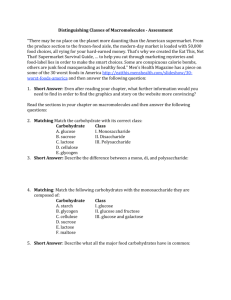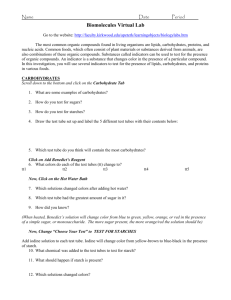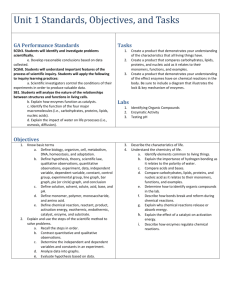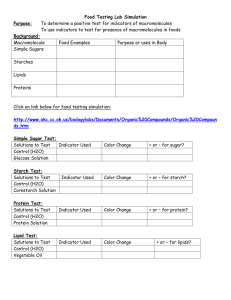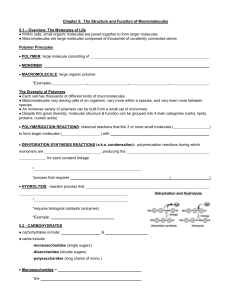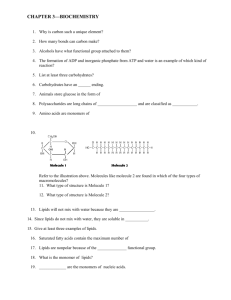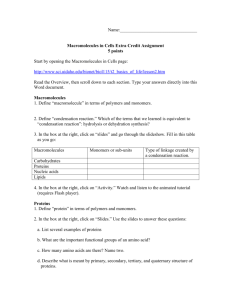AP European History (Sem 1), Unit 03, Lesson 04
advertisement
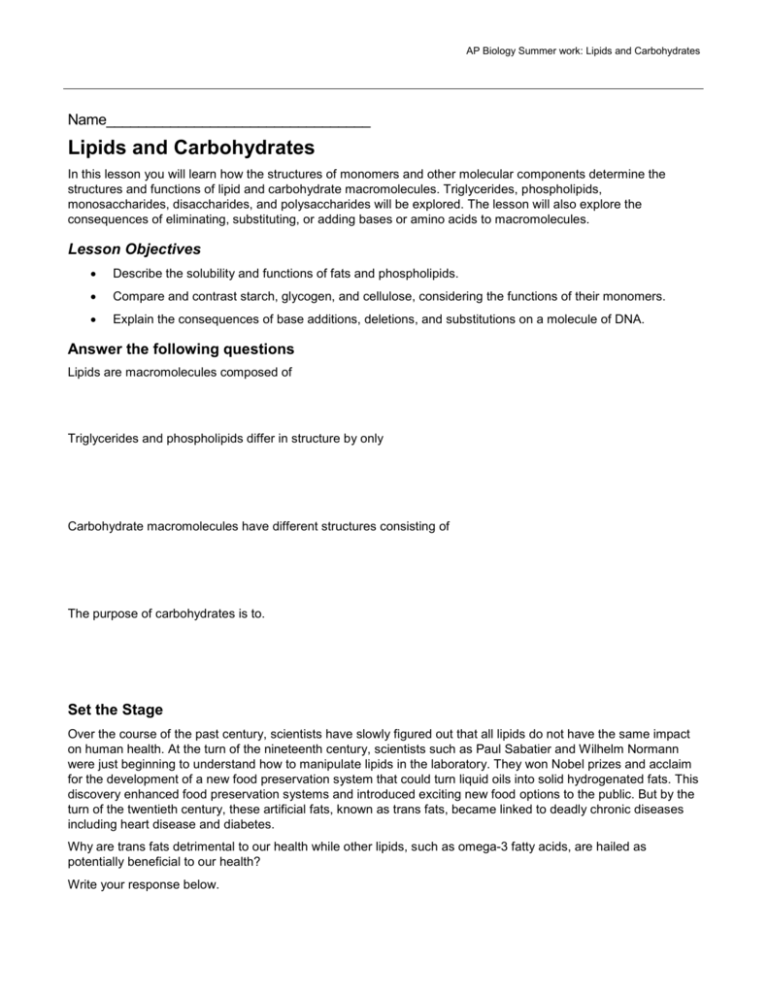
AP Biology Summer work: Lipids and Carbohydrates Name_________________________________ Lipids and Carbohydrates In this lesson you will learn how the structures of monomers and other molecular components determine the structures and functions of lipid and carbohydrate macromolecules. Triglycerides, phospholipids, monosaccharides, disaccharides, and polysaccharides will be explored. The lesson will also explore the consequences of eliminating, substituting, or adding bases or amino acids to macromolecules. Lesson Objectives Describe the solubility and functions of fats and phospholipids. Compare and contrast starch, glycogen, and cellulose, considering the functions of their monomers. Explain the consequences of base additions, deletions, and substitutions on a molecule of DNA. Answer the following questions Lipids are macromolecules composed of Triglycerides and phospholipids differ in structure by only Carbohydrate macromolecules have different structures consisting of The purpose of carbohydrates is to. Set the Stage Over the course of the past century, scientists have slowly figured out that all lipids do not have the same impact on human health. At the turn of the nineteenth century, scientists such as Paul Sabatier and Wilhelm Normann were just beginning to understand how to manipulate lipids in the laboratory. They won Nobel prizes and acclaim for the development of a new food preservation system that could turn liquid oils into solid hydrogenated fats. This discovery enhanced food preservation systems and introduced exciting new food options to the public. But by the turn of the twentieth century, these artificial fats, known as trans fats, became linked to deadly chronic diseases including heart disease and diabetes. Why are trans fats detrimental to our health while other lipids, such as omega-3 fatty acids, are hailed as potentially beneficial to our health? Write your response below. AP Biology Summer work: Lipids and Carbohydrates Reading Guide Read the Lipids & Carbohydrates: Reading Assignment and Define the following terms Keywords Keyword Definition/Notes Cellulose Chitin disaccharide a carbohydrate molecule composed of two monosaccharides bonded together Glucose an formula Glycerol Glycogen a highly branched polysaccharide made from glucose monomers, used for energy storage in animal cells Isomers chemicals that have the same numbers and types of atoms but differ in their structural arrangement Phospholipid an where is it found polysaccharide saturated fatty acid Starch a triglyceride with no double bonds AP Biology Summer work: Lipids and Carbohydrates Keyword Definition/Notes unsaturated fatty acid Identifications Describe the structure and function of listed terms and give examples Description/Notes macromolecules monomers lipid structures carbohydrate structures Essential Questions Answer the following questions from your reading: 1. What are the solubility characteristics and functions of fats and phospholipids? 2. How do the structures of starch, glycogen, and cellulose differ? 3. What are the consequences of base additions, deletions, and substitutions on a molecule of DNA? AP Biology Summer work: Lipids and Carbohydrates Extensions: research these questions using alternate resources besides asking someone else. Write an appropriate response. 1. What are the structural differences between cellulose and starch? Explain in detail why humans have difficulty digesting cellulose. 2. What is the adaptive advantage of the tightknit structure of starch? 3. How does the element phosphorus play a vital role the relationship it has with lipids. Why would all biotic things die if this was not available? 4. Sketch out a diagram that would illustrate the differences between a saturated and unsaturated lipid.
